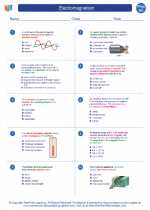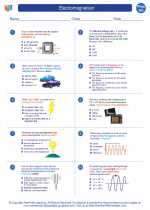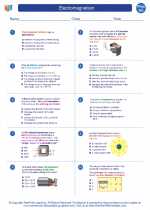Electromagnetism -> vitamin b3
Vitamin B3: Niacin
Vitamin B3, also known as niacin, is a water-soluble vitamin that is essential for various bodily functions. It plays a crucial role in converting food into energy and is important for maintaining the health of the skin, nerves, and digestive system.
Functions of Vitamin B3
- Energy Metabolism: Niacin is essential for the breakdown of carbohydrates, fats, and proteins to produce energy.
- Cellular Health: It supports the health of cells and is involved in DNA repair and cell signaling.
- Cholesterol Management: Niacin can help lower LDL cholesterol and triglyceride levels while increasing HDL cholesterol levels.
- Skin Health: It supports the health of the skin and can help treat skin conditions like acne and eczema.
- Nervous System Function: Niacin is important for the normal functioning of the nervous system.
Sources of Vitamin B3
Good food sources of niacin include:
- Fish (tuna, salmon)
- Poultry (chicken, turkey)
- Meat (beef, pork)
- Whole grains (brown rice, barley)
- Legumes (lentils, peanuts)
- Nuts and seeds (sunflower seeds, almonds)
- Vegetables (mushrooms, avocados)
Deficiency and Toxicity
A deficiency of vitamin B3 can lead to a condition called pellagra, which is characterized by symptoms such as dermatitis, diarrhea, and dementia. On the other hand, excessive intake of niacin supplements can lead to niacin toxicity, causing symptoms such as flushing, liver damage, and impaired glucose tolerance.
Recommended Daily Intake
The recommended dietary allowance (RDA) for niacin varies by age and gender. For adult men, it is 16 mg/day, and for adult women, it is 14 mg/day. Pregnant and breastfeeding women have slightly higher RDAs.
Conclusion
Vitamin B3, or niacin, is an essential nutrient that plays a critical role in energy metabolism, cellular health, and the functioning of the nervous system. It can be obtained from a variety of foods and is important for overall health and well-being.
.◂Physics Worksheets and Study Guides High School. Electromagnetism

 Worksheet/Answer key
Worksheet/Answer key
 Worksheet/Answer key
Worksheet/Answer key
